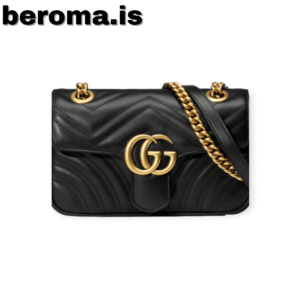 In the labyrinthine echelons of fashion, where luxury and desire intersect, a peculiar trend has claimed its stake—replica luxury bags, with a spotlight on Gucci’s mesmerizing men’s collection. This surge is not merely a testament to Gucci’s iconic status but also a reflection of a complex interplay between ethics, economy, and the eternal allure of luxury.
In the labyrinthine echelons of fashion, where luxury and desire intersect, a peculiar trend has claimed its stake—replica luxury bags, with a spotlight on Gucci’s mesmerizing men’s collection. This surge is not merely a testament to Gucci’s iconic status but also a reflection of a complex interplay between ethics, economy, and the eternal allure of luxury.
Ethics vs. Economy
The debate around replica luxury bags is as intricate as the designs of the bags themselves. On the one hand, ethical considerations condemn the counterfeit market for its infringement on intellectual property rights, questionable labor practices, and the potential support of illicit activities. Conversely, economic factors paint a different picture—highlighting the inaccessible price points of genuine luxury goods for the average consumer and the demand-driven marketplace that replicas fulfill.
Quality and Craftsmanship
Genuine Gucci bags are the epitome of luxury, reflecting decades of artisanal expertise, innovation, and uncompromised quality. The materials, stitching, hardware, and even the scent of a real Gucci bag narrate a story of exclusivity and excellence. Replicas, although sometimes convincing in appearance, often fall short of capturing the essence and enduring quality of an original Gucci piece. The differences, albeit subtle to an untrained eye, are significant in terms of longevity, finesse, and overall experience.
Consumer Behavior
Understanding why consumers lean towards replicas unveils a complex spectrum of motivations. For some, it’s a financial shortcut to the emblematic status and aesthetic appeal that luxury brands like Gucci offer. For others, it’s a mode of experimentation with styles and trends without the hefty investment genuine luxury pieces command. However, this trend also hints at deeper issues of identity, self-perception, and the influence of societal norms that equate luxury with success and social standing.
Legal Implications
The legal landscape concerning counterfeit goods is stringent, with laws and regulations firmly opposing the production and sale of luxury replicas. Brands invest significantly in anti-counterfeiting measures, and consumers caught purchasing replicas can face legal consequences, varying by jurisdiction. Yet, the market thrives, fueled by the internet and the globalization of trade, presenting a constant challenge for brands and lawmakers alike.
Alternatives and Solutions
For the conscientious shopper, there are ethical avenues to accessing luxury without compromising on legal or moral grounds. The pre-owned market offers a sustainable choice, providing access to genuine luxury items at reduced prices, while also extending the lifecycle of products. Emerging affordable luxury brands, though not carrying the heavyweight name of Gucci, offer quality, craftsmanship, and the luxury experience without the exorbitant price tag. These alternatives not only cater to the desire for luxury but also promote responsible consumption practices.
Conclusion
The allure of Gucci’s men’s replica bags illuminates the intricate dance between desire and reality, luxury and accessibility, ethics and economics. While replicas might offer a fleeting taste of luxury, they lack the soul, story, and sustainability that genuine luxury pieces carry. As we tread through the evolving landscape of luxury fashion, it beckons us to ponder—what is the true cost of luxury, and how do we align our desires with our values? For the discerning and ethically minded, the path to genuine luxury, albeit pricier, offers richness beyond the material, imbued with heritage, craftsmanship, and an unwavering respect for creativity.